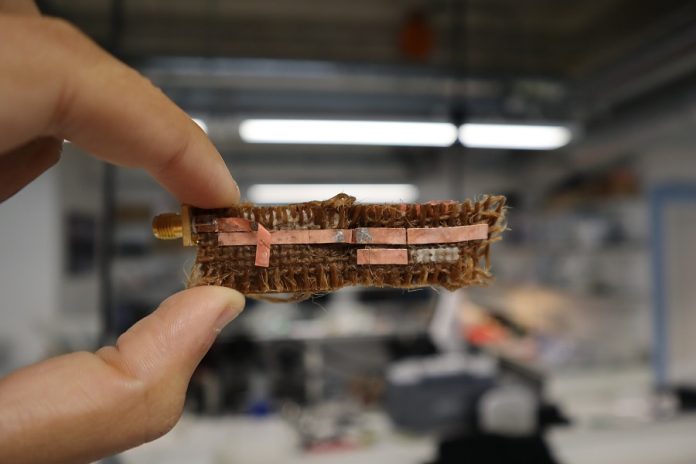
Engineers in Scotland are developing eco-friendly circuit boards that could make wireless communication devices greener and more sustainable.
The collaboration between the University of Glasgow and the materials company Jiva Materials aims to tackle one of the biggest sources of electronic waste—printed circuit boards (PCBs).
PCBs are essential components of nearly all electronic devices, from smartphones to routers. Yet, they are also a major environmental problem.
These boards account for up to 40% of global electronic waste and are made from non-recyclable materials such as flame-retardant composites and ceramics.
Once discarded, they end up in landfills, where they release toxic substances into the environment. Some even contain “forever chemicals” like PFAs, which can persist for decades and contaminate water sources.
Jiva Materials has created a sustainable alternative called Soluboard, made from natural fibers like jute and flax coated with a special water-soluble resin. Unlike traditional PCBs, Soluboards can be safely disposed of at the end of their life.
When placed in hot water, they dissolve, allowing the copper circuits and chips to separate and be recycled without releasing harmful waste.
Researchers from the University of Glasgow’s James Watt School of Engineering are now working with Jiva Materials to enhance Soluboard’s performance for use in high-speed, high-frequency electronics.
Their findings, outlined in a new white paper, show that these biodegradable boards can handle radio signals above 4 gigahertz (GHz)—the range used in Wi-Fi, Bluetooth, and RFID communication.
The team also demonstrated that Soluboards can transmit high-speed data at over 3 gigabits per second, without distortion. This makes them suitable for consumer devices that rely on fast data transfer, such as HDMI and USB interfaces.
Dr. Mahmoud Wagih, who leads the project, said the innovation could have a major impact on reducing the electronics industry’s carbon footprint. “Moving toward sustainable, recyclable electronics is vital,” he explained.
“With single-use devices becoming more common, developing materials like Soluboard helps ensure we can build technology responsibly.”
He added that the research also tackles the challenges of working with plant-based materials, which behave differently from conventional industrial composites.
By co-designing materials and electronic components together, the team hopes to improve performance and make biodegradable PCBs viable for everyday applications.
Stephen Driver, CEO of Jiva Materials, praised the collaboration: “PCBs are the invisible polluters of modern technology.
Our partnership with the University of Glasgow is helping us refine Soluboard to deliver high performance while staying true to its environmental mission.”
If successful, biodegradable circuit boards could soon power the next generation of sustainable wireless devices—from Internet of Things (IoT) sensors to smartphones—offering a future where electronics don’t just connect the world, but help protect it too.


